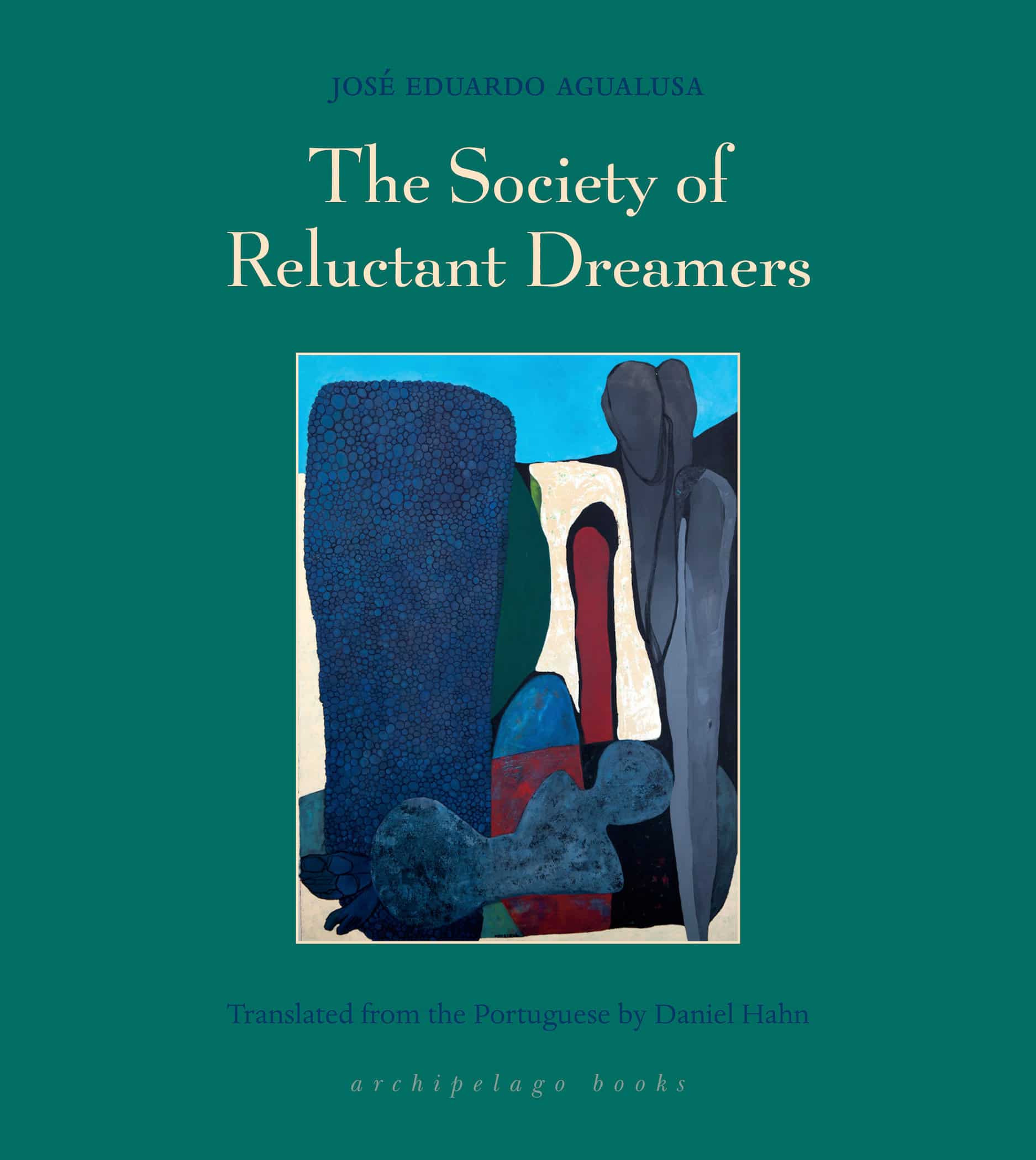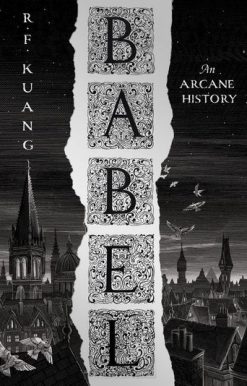The Society of Reluctant Dreamers
| by |
|---|
13.00 JOD
Please allow 2 – 5 weeks for delivery of this item
Description
“False memories and clairvoyant dreams combine in Agualusa’s sweeping, intricately plotted tale of personal and political history in Angola . . . ” – Publishers WeeklyWhen Daniel Benchimol—consummate dreamer—uncovers the photographed reveries of a famous Mozambican artist, Moira, his fascination quickly develops to obsession as the sight lines between reality and dreams get harder to bring into focusDaniel Benchimol spends his dreaming hours interviewing revolutionaries and writers. In this treacherous sleepscape, we find the Angolan anti-communist Jonas Savimbi, Muammar Gaddafi, hunched and hiding in a gutter, and Julio Cortázar as a great billowing tree, speaking to Daniel through an alphabet of clouds. He dreams wild dreams of people he’s never met, squinting at them as if submerged in the hazy waters of southern Angola.When Daniel finds a camera on the beach, he becomes obsessed with the woman in the photos. Moira is a Mozambican artist with a similar preoccupation with her subconscious life – she stages her dreams in her artwork. The two meet, and together they explore the cloudy edges of their nightly visions, tugging at the fringed hem of the real. The Society of Reluctant Dreamers is a delicately crafted glimpse into the aftermath of Angolan independence, a postcard sent to prod the illusion of peace and freedom.
Additional information
| Weight | 0.34 kg |
|---|---|
| Dimensions | 2.06 × 15.85 × 17.76 cm |
| PubliCanadation City/Country | USA |
| by | |
| format | |
| Language | |
| Pages | 272 |
| publisher | |
| Year Published | 2020-3-24 |
| Imprint | |
| ISBN 10 | 1939810485 |
| About The Author | José Eduardo Agualusa (born 1960) is an Angolan writer. He studied agronomy and forestry in Lisbon before starting his writing career as a poet. His novel Creole was awarded the Portuguese Grand Prize for Literature, and he received the U.K.'s Independent Foreign Fiction Prize for The Book of Chameleons. In 2017 he and his translator, Daniel Hahn, won the Dublin Literary Award for A General Theory of Oblivion.Daniel Hahn is the author of several works of non-fiction, including the history book The Tower Menagerie. He is the editor of The Oxford Companion to Children's Literature and one of the editors of The Ultimate Book Guide, a series of reading guides for children and teenagers – the first volume of which won the Blue Peter Book Award. His translation of The Book of Chameleons by José Eduardo Agualusa won the Independent Foreign Fiction Prize in 2007. He has also translated the work of José Luís Peixoto, Philippe Claudel, María Dueñas, José Saramago, Eduardo Halfon, Gonçalo M. Tavares, and others. |
Winner of the 2019 Angolan National Prize for Culture and ArtsOne of Financial Times Best Books of 2019 "I loved one of the author’s previous novels so much that the idea of skipping this one . . . was inconceivable . . . Agualusa’s prose, as translated by Daniel Hahn from the Portuguese, is wry and lucid and weird . . . Read if you like: Roberto Bolaño, the films of Yorgos Lanthimos, Phil Klay, traveling alone, the simulation hypothesis." – Molly Young, New York Times Book Review"False memories and clairvoyant dreams combine in Agualusa’s sweeping, intricately plotted tale of personal and political history in Angola…While the dense and tangled story, rife with diary entries, recounted personal histories, and thinly drawn tertiary characters, is almost too short for its own good, Agualusa manages to pull off a deeply satisfying ending…(a) populous, multilayered commentary on the fogs of love and war." — Publishers Weekly "Past, present, and future mesh, setting the stage for a beautiful and chaotic novel on the trials of midlife crisis amidst revolution . . . Agualusa’s concerns are united in a harrowing and magical apex of resistance." — Cam Lind, Full Stop"A nimble investigation into the liminal spaces between collective unconscious, lived experience, and political reality, The Society of Reluctant Dreamers is an epistemic jaunt through postcolonial Angola. I enjoyed every moment of this stirring and surreal book." — Katharine Solheim, Words Without Borders"For Angolan novelist José Eduardo Agualusa, his country’s history has been a wellspring of both inspiration and ambivalence…His latest novel to be translated into English, The Society of Reluctant Dreamers, follows the country’s fortunes into the recent past, which are less violent [than during the Angolan civil war] but hardly peaceful…For Agualusa, the uncertain moment offers a perfect context to tell a story steeped in uncertainty, swimming in dreams." — Mark Athitakis, On the Seawall"It's a winning novel, a fundamental ebullience simmering under the story and then coming out full force…An enjoyable read, and interesting glimpse of contemporary Angola." — M. A. Orthofer, Complete Review Praise for A General Theory of Oblivion: "Hahn is one of our most experienced translators. Such experience shows in tiny interventions to guide the English reader through the chaos of the Angolan battlefield … and in his taking confident ownership of certain descriptive passages, ensuring the music of the original is conveyed along with the meaning… a timely homage to the prize of Angolan independence." — The Independent "Agualusa's novel is a powerful examination of personal recollection and public upheaval, and a penetrating study of isolation and the cost of freedom." — Malcolm Forbes, The National "Like Portuguese writer Fernando Pessoa and Argentine Jorge Luis Borges, Portuguese-Angolan writer José Eduardo Agualusa is a literary trickster who dazzles with his artificial fictional creations…. Agualusa is a master of varied genre structure, and he has great fun shifting from spy novel to pastoral narrative to interior reflection, but his heart is deeply invested in his characters, and each individual's story burns itself into the reader to make us reconsider our capacity for empathy and understanding…. Profoundly satisfying." — David Wiley, Minneapolis Star Tribune for A General Theory of Oblivion "Agualusa's writing is a delight throughout, as he opens up the world of Portuguese-speaking Africa to the English-speaking community – and what a world it is." — The Scotsman "'A man with a good story is practically a king.' If this is true, then Agualusa can count himself among the continent's new royals." — Angel Gurría-Quintana, The Financial Times "A master storyteller…It's a tribute to Agualusa's storytelling that the bittersweet redemption found by his characters feels authentic; he and they have earned it." — Washington Independent Review of Books |
|
| Other text | Without doubt one of the most important Portuguese-language writers of his generation. — António Lobo Antunes"Cross J.M. Coetzee with Gabriel García Márquez and you've got José Eduardo Agualusa, Portugal's next candidate for the Nobel Prize." – Alan Kaufman, author of Matches |
| Excerpt From Book | 2 Let us picture an amphitheater. A hall sloping down toward a stage of dark waxed wood, framed by a heavy scarlet curtain. A woman, totally naked, is playing piano, while parakeets flutter all around her. I’m seated, also naked, in the back rows, right up near the top, and I’m watching the concert through tear-filled eyes. I don’t know the pianist personally, but I know everything about her. An old man, seated to my left, wearing a brilliant admiral’s uniform, whispers in my ear: “That woman’s a fraud!” I restrain myself so as not to hit him. I’ve never heard such beautiful music in my whole life. Besides, I feel a deep admiration for that woman. I know she’s been arrested, tortured, she’s survived a tumor and a cruel, violent husband, who forbade her from pursuing a musical career. After she was widowed, she went back to the piano. She established a neo-pagan church, The Cult of the Goddess, which accepts only women. In her concerts, she usually has herself accompanied by animals, the parakeets I saw there but also dogs and even wolves. Sometimes she fires a pistol up into the air, using real bullets, to the annoyance of the owners of the halls. A dream. I woke up with it on the morning of the day I got divorced. I recalled some fragments the following morning, while I was swimming back to land with the camera attached to my right wrist. The dark stage, the naked woman, with her shriveled breasts hanging down over her belly. I often dream about people I’ve never met. Sometimes I dream the whole of these people’s lives, from their births all the way to their deaths. At the end of the concert I walked down to the stage to congratulate the woman. She hugged me tenderly and said: “Everything passes, my friend. Time covers the world in rust. Everything that shines, everything that is light, will soon be ash and nothing.” “Almost everything is ash already,” I answered. “They’ve incinerated my past.” At the moment when I awoke, the conversation made no sense. By the end of the day, when I had come back from the courthouse, it did. These kinds of conversations often happen in my dreams – implausible, mysterious, affected, even ridiculous. Later, though, they attain an unexpected coherence. Sometimes, I dream loose lines of verse. I also dream interviews. I’ve interviewed Jonas Savimbi four times: twice awake and twice in dreams. Muammar Gaddafi I’ve only interviewed in dreams. He told me his last days had been terrible. He’d slept in abandoned houses, fleeing his pursuers, trying to reach the village where he’d been born. Planes dropped bombs on the column he was traveling in and he found himself forced to get out of the car and take shelter in a drain. When I interviewed him, Gaddafi was in the drain, bent double, pressed against the cement, wearing a khaki shirt and with a black cap on his head. The following morning, I woke up, turned on the television and saw him with his head uncovered, hair in disarray, his face covered in blood, and a look of dazed surprise, astonishment, his delicate hands trying to brush away the hard blows he was receiving. “God is great! God is great!” his killers were shouting. I felt sorry for him. I felt even sorrier for God. In the interviews I’ve done in my dreams, the interviewees have often proved more authentic, and especially more lucid, than when I’ve been alert. Others, however, make use of mysterious languages of which I’m only able to guess at fragments. Julio Cortázar, for example, a writer with whom I’m not even particularly well acquainted, appeared to me in the form of an ancient giant cedar, with a twisted trunk and crinkled leaves. He answered my questions by moving clouds in the sky. The clouds were a kind of alphabet, the sky a blank page. I remember that dream because seated in a straw chair, in the shade of Cortázar, ramrod straight and very remote, was the Candy-Hair-Woman. The Cotton-Candy-Hair-Woman appeared in my dreams often. She was tall and elegant and almost always wore the colorful fabrics of our local bessangana women. A long, angular face, interesting without being beautiful, and a quindumba hairstyle that was very tall and soft, and copper-colored. The Cotton-Candy-Hair-Woman waited for Cortázar to leave the clouds at peace and then said: “I once met a man who was dreamed by the sea.” |
Only logged in customers who have purchased this product may leave a review.
Related products
-
On backorder 2-5 Weeks to Arrive
90.00 JOD -
On backorder 2-5 Weeks to Arrive
-
Low stock
7.99 JOD -
On backorder 2-5 Weeks to Arrive
90.00 JOD






Reviews
There are no reviews yet.